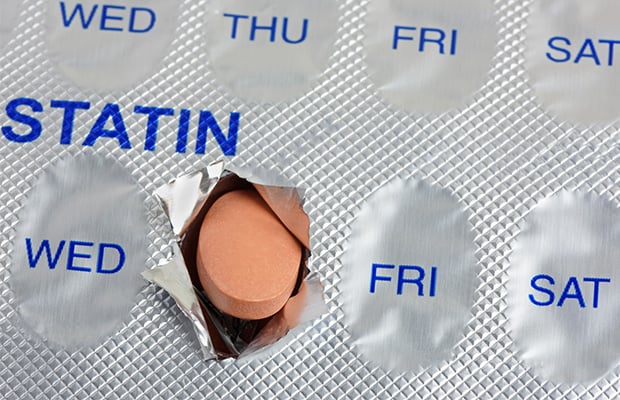The official body which sets guidelines on health and care, the National Institute for Health and Care Excellence (NICE), has recommended that statins can be “considered” for adults who haven’t had heart attack or stroke and whose 10-year risk is less than 10 per cent. Like the previous guidance, the new draft recommends that statins be offered to people whose risk is above 10 per cent.
Statins may help some people at a low risk of cardiovascular diseases stay healthy for longer. The new draft guidance says that patients at low risk should speak to their GPs and make any treatment decision together, based on individual circumstances. It says that a 20mg dose of atorvastatin could be considered for these “low-risk” people if they want to take a statin to reduce their risk, or if there is concern that their risk of a heart attack or stroke could have been underestimated.
NICE says that “the evidence is clear, in our view, that for people with a risk of 10% or less over 10 years, statins are an appropriate choice to reduce that risk.” It says that if people with just a 5% risk over the next 10 years were to take a statin, for every 1,000 people doing this about 20 will be prevented from getting heart disease or having a stroke.
The new draft guidance also suggests that statins should be considered for all 85-year-olds and all adults with type 1 diabetes.
The current NICE recommendation is that people with a 10 per cent or higher risk of having a cardiovascular event, such as a heart attack or stroke, over the next 10 years should be offered a statin.
Only about half of the people who are currently eligible for statins actually take them, and NICE has said that increasing this number could make the biggest difference in reducing the numbers of heart attacks and strokes.
The current guidance is still in place while the draft guidance is considered further (including feedback from experts and the public). The final guidance is due to be published in May 2023.
NICE is the health guidance body for England, although in practice other nations of the UK often follow its recommendations.
Want to get fit and healthy?
Sign up to our fortnightly Heart Matters newsletter to receive healthy recipes, new activity ideas, and expert tips for managing your health. Joining is free and takes two minutes.
I’d like to sign-up
What are statins taken for?
Statins are medications that reduce the level of cholesterol in your blood and protect the insides of your arteries. They’re one of the most prescribed drugs in the UK, with an estimated 7-8 million adults taking them. Your GP or cardiologist will find the right statin for you, depending on your medical history and the cholesterol level they want you to aim for.
Cholesterol is a fatty material in your blood which is mainly made in the liver. It plays an important role in how your cells work and helps your body make vitamin D and hormones which keep your bones, teeth and muscles healthy. Having too much cholesterol can clog your arteries, causing problems like heart disease. Reducing cholesterol helps lower the risk of developing heart and circulatory diseases, including angina, heart attack and stroke.
What are the side effects of statins?
Like all medications, statins have potential side effects. The most common are muscular aches and pains, but many people experience no side effects.
A recent BHF-funded research study found that while statins are linked with a small increase in the risk of muscle pains or weakness, they don't cause the majority of muscle pain symptoms commonly connected with them. NICE also says: “The best evidence shows that most people don’t get muscle pains with statins, and many more people will get muscle pains whether they take statins or not, than have muscle pain caused by statins.”
The BHF verdict
Professor Sir Nilesh Samani, our Medical Director, said: "Heart attacks and strokes still kill more people prematurely than anything else, with high levels of cholesterol being a major risk factor.
“Research has shown that statins are largely safe. However, the decision to start this medication, which needs to be taken on a long-term basis, is very much a personal choice [and] should be based on a conversation with your GP, and combined with other measures such as eating a healthy diet and exercising regularly to get the most benefit."
How good was the media coverage?
The draft guidance was covered widely in the media, including the BBC, The Guardian, The Daily Mail and Express.
The Guardian accurately reported that the new guidance ‘could’ make an ‘extra 15m people’ eligible for statins in England, capturing that the new guidance is still at a draft stage and that not all adults will need the treatment.
The article covered the nuanced considerations that patients may make when deciding whether to take this medication. It also mentioned the key role of GPs who should explain the potential risks and benefits, and the importance of having a healthy weight, eating a balanced diet, keeping active, and not smoking for reducing the risk of cardiovascular diseases.
Similarly, Express mentioned the need for people at risk of cardiovascular diseases to change their lifestyles. The BBC reporting was similar, concluding that the decision to take statins is a ‘personal choice’.
Although the reporting in The Daily Mail was mostly accurate, the headline – “Now ANYONE over 18 can get statins! Huge shake-up of NHS drug guidelines could see doctors give millions more Brits the cheap cholesterol-busting pills” – may be misleading.
The draft guidance refers to people at a relatively low risk of a heart attack or stroke over 10 years, who want to take a statin, or whose risk may be underestimated, rather than to ‘anyone’ regardless of their personal circumstances.
The headline also suggests that this new guidance is already in place, when in fact it’s still a draft that is now being sent out for consultation.
What to read next...







